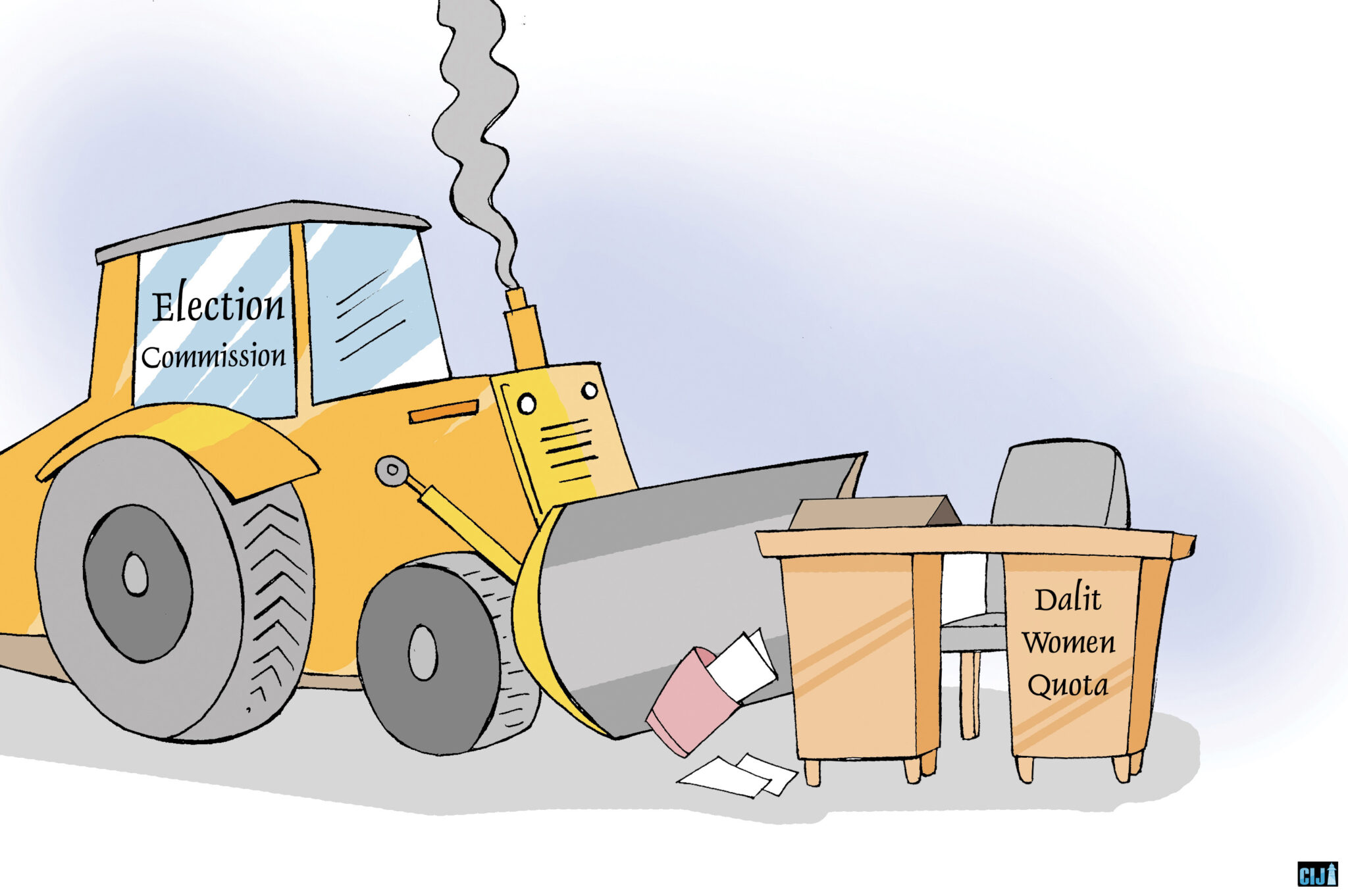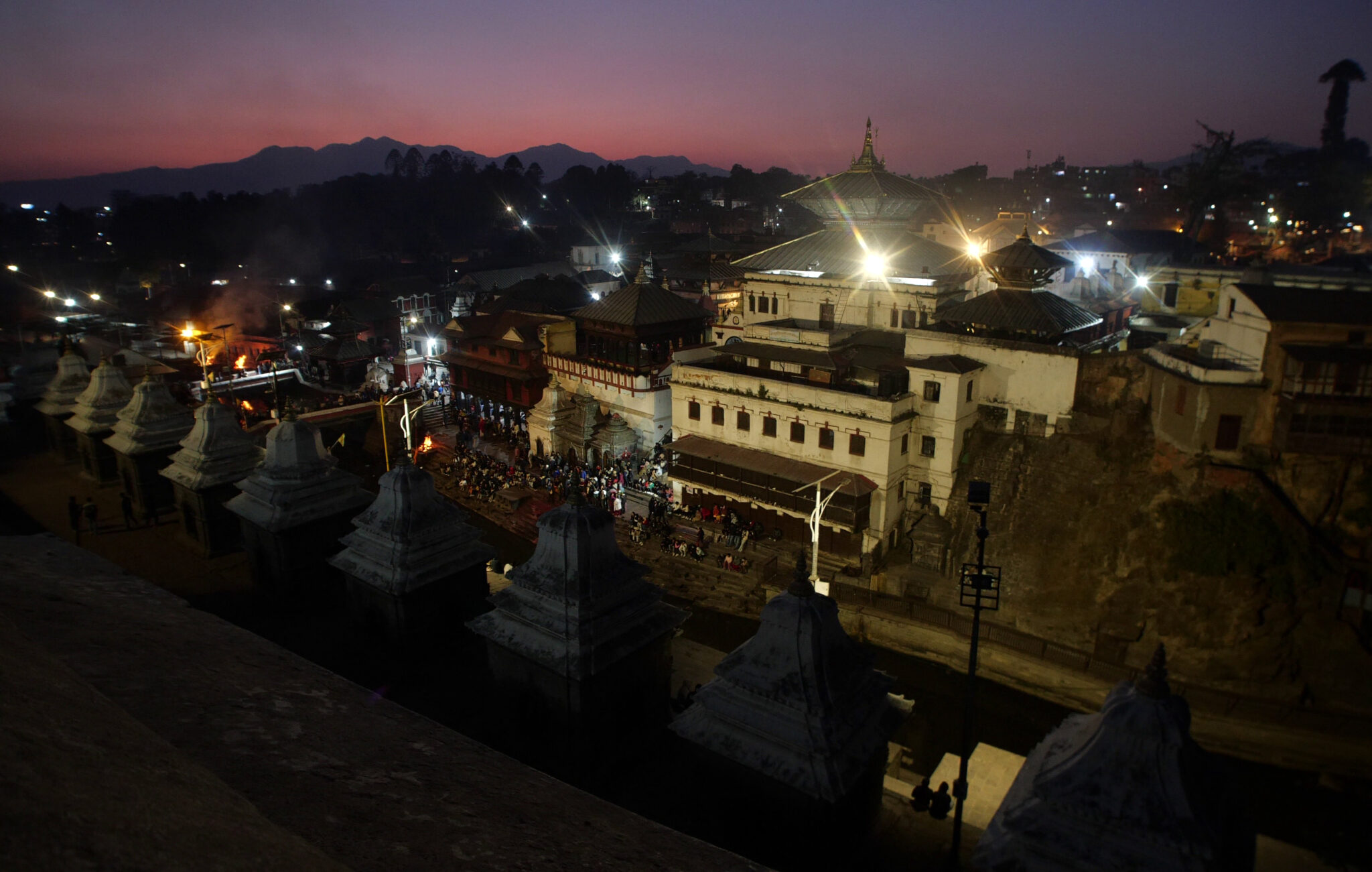Because of the ineffective federal government and disputes between some elected people’s representatives and chief administrative officers nearly 200 local governments are led by acting chief administrative officers complicating local governance and development works.
Mukesh Pokhrel | CIJ, Nepal
On August 16, the Federal Affairs and Local Development Ministry transferred Krishna Gyawali, chief administrative officer of Shuddhodhan Rural Municipality of Kapilvastu to Gaidahawa Rural Municipality of Rupandehi. Dinesh Gaud, an education officer of Kotahimai Rural Municipality, replaced Gyawali as acting chief administrative officer.
The letter handed over to Gaud reads the responsibility was given to him until the new chief administrative officer joins the office as per article 84 (4) of Local Government Operation Act-2015. Shortly after Gaud took charge of the office as acting chief, works ranging from regular routine to development works—road and building construction—were halted. Locals padlocked the office for 12 days demanding that the full-fledged authority holding officials like Gyawali be appointed at the office.
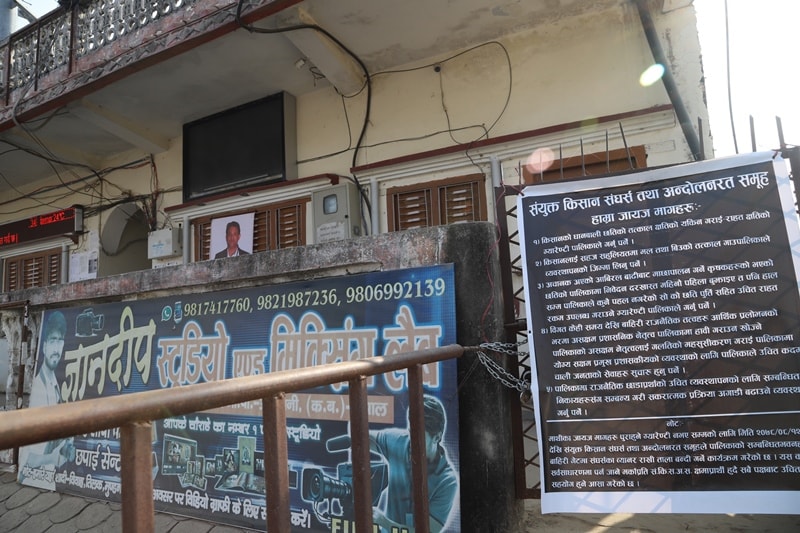
Locals protesting against acting chief administrative officer in Shuddhodhan Rural Municipality.
“Works related to contract agreement signing to budget release are affected for one and half months in a row over appointing chief administrative officer,” the municipality’s chairperson Ahamad Khan.
Dispute had emerged between rural municipality chief Khan and vice-chairperson Sudhadevi Pandey regarding Gaud’s transfer. Khan was for respecting Khan’s appointment as chief administrative officer whereas Pandey was either for retaining Gyawali or waiting for another full-fledged chief administrator. Amid the dispute locals united under the banner of Janakalyan Youth Group padlocked the office on November 24 last year.
Vice-chairperson Pandey says she is for not accepting Gaud as chief administrative in accordance with the decision by the rural municipality’s administrative committee. “Since Gaud was accused of being involved in financial irregularities during his stay in previous office the administrative committee has decided not to allow him to take charge of office,” said Pandey, “I’m firm in implementing the same decision. There was no need to depute the acting chief administrative officer when someone with a full-fledged mandate was already working there.”
The rural municipality’s administrative committee on September 30 had decided not to accept deputation of Gaud citing his tented image during his stay in Motahimai. Fifteen days after the decision Khan stood against own decision further complicating nasty row over appointing chief administrative officer.
Regarding Gaud’s transfer the ministry took three different decisions in three months. Less than two months after mobilizing him to Shuddhodhan Rural Municipality on September 7 to work as acting chief administrative officer his deputation was withdrawn. A week after revoking the deputation order the ministry on October 26 scrapped the second decision made to withdraw his deputation continuing Gaud as acting head.
“As per decision taken on October 26 Shuddhodhan Rural Municipality, Kapilvastu, is your work station,” reads the ministry’s recent decision.
To resolve the long-standing dispute a meeting of the District Security Coordination Committee requested the ministry to send a new chief administrative officer, reject Gaud as acting chief administrative officer and allow Gyawali to start work in a new office.
Local governments run by acting chiefs
Elected in 2017 under the new federal setup as envisioned by 2015’s new constitution, the first batch of elected people’s representatives are completing their five-year term this year. But administrative work of several local governments is being executed on adhoc basis, giving prime responsibilities to acting chief administrative officers. The ministry record shows 105 municipalities and 113 rural municipalities are run by acting chief administrative officers.
Basanta Adhikari, spokesperson at the ministry because of inadequate manpower and elected people’s representatives’ intent to serve their petty interests by overstepping jurisdictions, have complicated the administrative chaos.
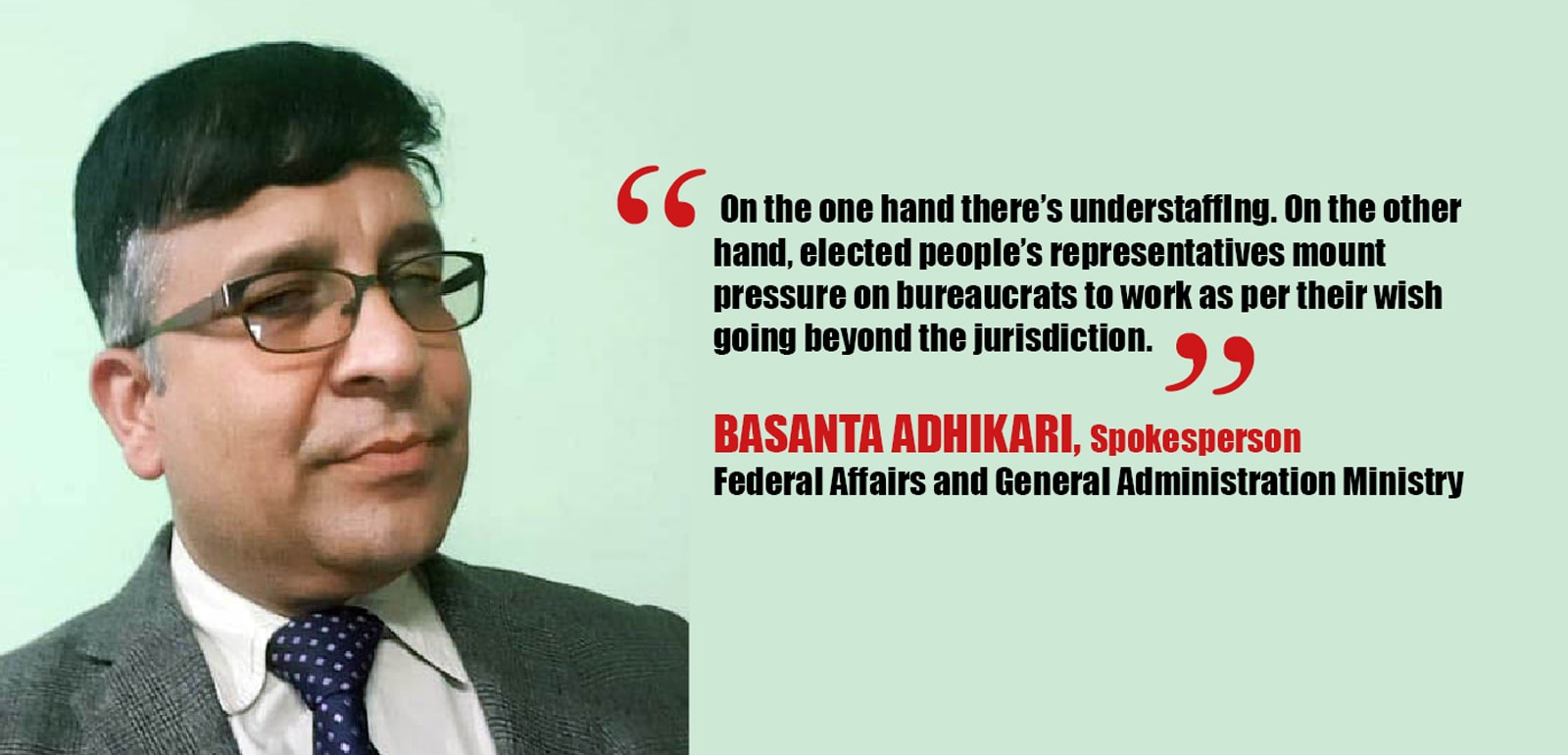
Currently, altogether 2800 section officers and 900 under-secretaries are in the bureaucracy. Of them, 600 section officer positions and 85 under-secretaries are lying vacant. Altogether 100 are on leave for study or other work.
Ministry’s spokesperson Adhikari argued government officials from other sections were deputed to run local governments. “On the one hand there’s understaffing. On the other hand, elected people’s representatives mount pressure on bureaucrats to work as per their wish going beyond the jurisdiction,” said Adhikari.
He said an increased tendency of running the local governments by appointing acting officials from the side of elected people’s representatives has created lots of problems.
Ashok Byanju, chairperson of Municipality Association of Nepal disagrees with Spokesperson Adhikari. “The ministry is responsible for arranging chief administrative officers. It’s not fair to blame elected people’s representatives after failing to fulfill their own responsibility.”
Former Federal Affairs and Local Development Minister Lalbabu Pandit said legal arrangements were made to appoint the chief administrative officer from the federal government for coordination and collaboration between local and federal government.
Most local governments of province 2 are led by acting chief administrative officers. Of the total 105 local governments led by acting chief administrative officers 52 municipalities and 16 rural municipalities are from province-2.
Bharati Karki, vice-chairperson of Janak Nandini Rural Municipality, Janakpur, none of the chief administrative officers deployed from the federal government haven’t reached there. Health professional Ayodhee Das is working as acting chief administrative officer.
“Singha Durbar in Every Village became a mere slogan. Durbar is in Kathmandu only Singhas (lions) are left here,” said Karki referring to the ineffective Singha Durbar, the main administrative office of the federal government.
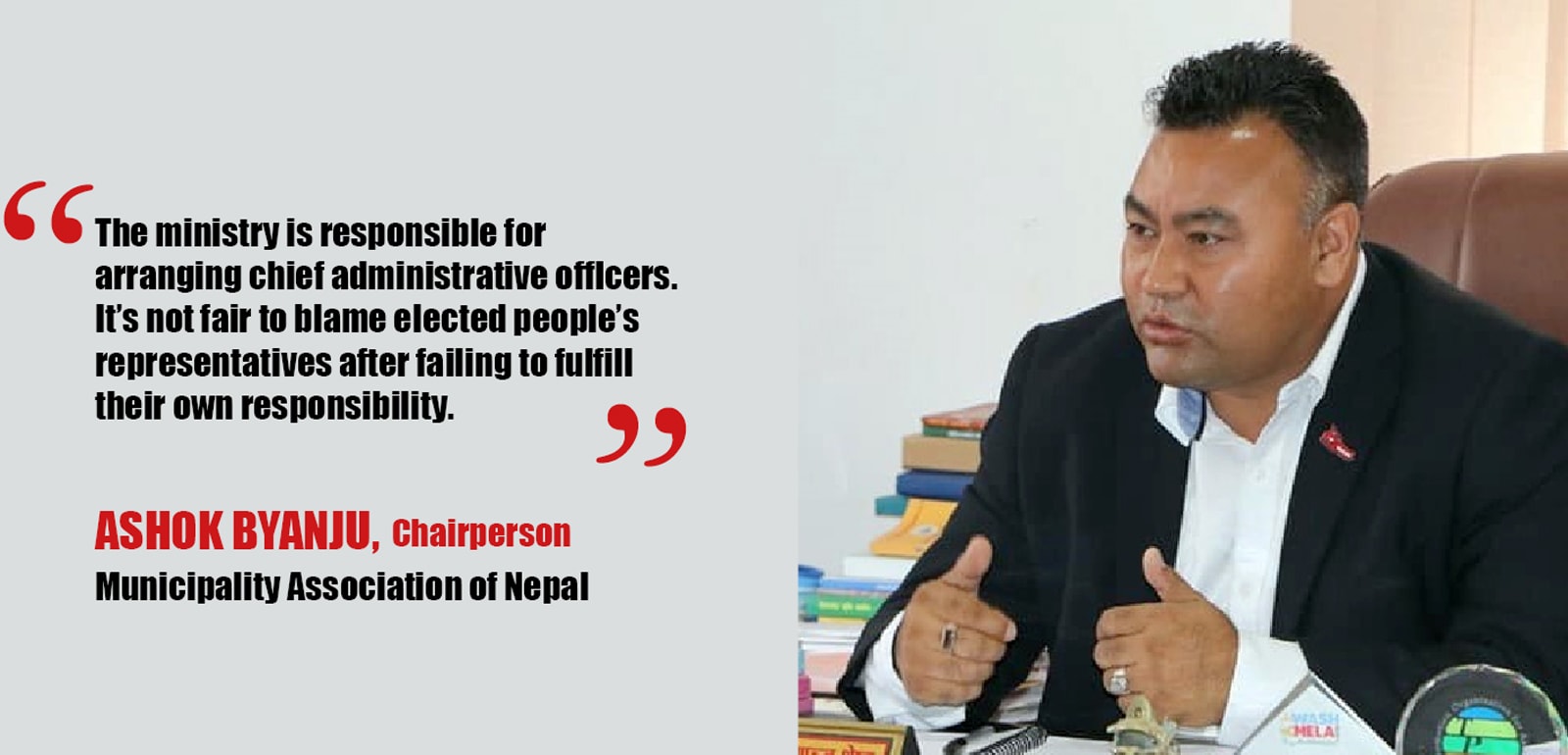
Out of the total positions created for this municipality only three staffers are in work. The office is running without an accountant after the only remaining accountant was also transferred to another office. Karki says all administrative works ranging from releasing regular salaries of staff to construction have been affected in the absence of an accountant. “People often encircle the office and threaten us to padlock it,” she said, “Then, I vow to them to buy locks on my own.”
After all works were halted, the district treasury controller office assigned an accountant to work at the office on a temporary basis. So, he spends a day in a week.
Spokesperson Adhikari says civil servants themselves refuse to work in assigned local governments mainly because of intervention from elected people’s representatives. “A conductive environment should be created for government employees deployed at the local level, no undue pressure at all. Elected people’s representatives should work like guardians.”
He says problems are created in several places after elected people’s representatives themselves do works designated for bureaucrats such as claiming demands, show interests in public procurement and try to award their cronies.
Hom Narayan Shrestha, chairperson at National Association of Rural Municipalities in Nepal, says disputes are often created between elected people’s representatives and chief administrative officers because of conflicting working style and attitude. “It seems problems are in some places as both the elected people’s representative and chief administrative officers have a kind of ego problem.”
Legally, there’s a provision of assigning a senior officer as acting chief administrative officer in case the position of chief administrative officer remains vacant.
The burden of acting chief
Local leaders say major decisions remain affected or delayed in the absence of chief administrative officers although acting officials can fix regular administrative and finance related works. Legally, a joint-secretary should be the chief adminstrative officer of a sub-metropolitan but the ministry hasn’t deployed the chief administrative officer for a year.
Mayor of Jeetpur Simraha Sub-metropolitan City
Krishna Prasad Poudel says absence of chief administrative officer delays development works. Bhoj Bahadur Khatri, chairperson of ward no. 4 of the same sub-metropolitan city says his proposal to form five users’ groups to expedite road construction and digging sewage canals has reached nowhere due to delay in decision making process.
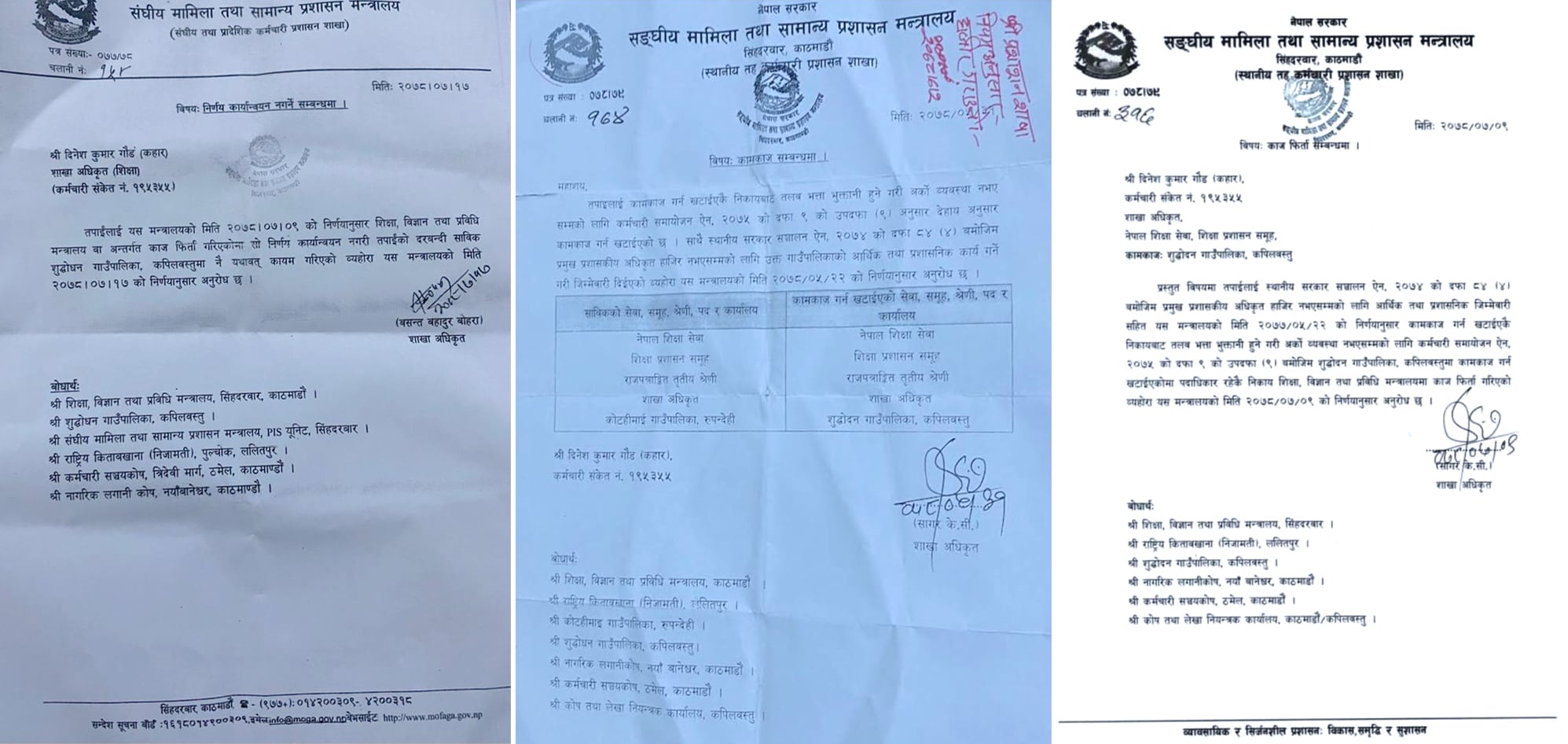
Circular issued by the Federal Affairs and General Administration Ministry.
“Work progress is reaching nowhere. Just delayed,” he said.
Laxmi Gautam, deputy mayor of Itahari Sub-metropolitan City, Sunsari, says absence of chief adminstrative officer matters in work although acting chief administrators can handle financial and regular routine responsibilities.
Itahari’s chief administrative officer Krishna Prasad Sapkota was transferred in July last year. Since then, Surya Prasad Subedi, chief of the education division, is working as acting chief administrative officer.
“Some works are affected due to legal obstacles,” Gautam shared her experience, “It seemed acting chief administrative officers lack some confidence to bear risk in taking responsibilities mainly while taking major decisions.”
Shristi Regmi, Deputy-mayor of Budhinanda Municipality in Bajura shares similar experiences. “Seems local and acting chief administrative are less competent and lack legal knowledge for producing better results,” said Regmi who worked four years with acting chief administrative officer.
Bansgadhi Rural Municipality of Bardia has also been running without a full powered chief administrative officer since last July. Mayor Shalikram Adhikari and Deputy-Mayor Sushma Chaudhary approached federal ministry twice seeking immediate appointment of chief administrative officer. Their efforts went futile.
“Bureaucrats don’t respect when someone from among their colleagues is appointed as acting chief administrative officer thinking that he would be removed from the responsibility at any time,” said Mayor Chaudhary, “This kind of attitude affects the overall performance of local governments.”
Dhan Bahadur Chand, who is working as acting chief administrative officer in Bansgadhi, is an accountant. Most employees assigned to work as acting chief administrative officers are those working in areas of health and education.
Bhumi Sharan Dhakal, deputy mayor of Kamal Bazaar in Achham, however, says it’s easy to work if local bureaucrats are appointed as acting chief administrative officers. Khadak Bahadur Bista has been working in Kamal Bazaar as acting chief administrative officer for the last two years.
Stiff competition to work as acting administrator
While the ministry is assigning junior officials as chief administrative officers citing lack of senior officials there’s a stiff competition among junior fellows to get acting chief administrative position. For competitors political backing if any always remains a blessing.
Vice-chairperson Pandey blamed education officer Gaud for being the acting chief because of favoritism from politicians.
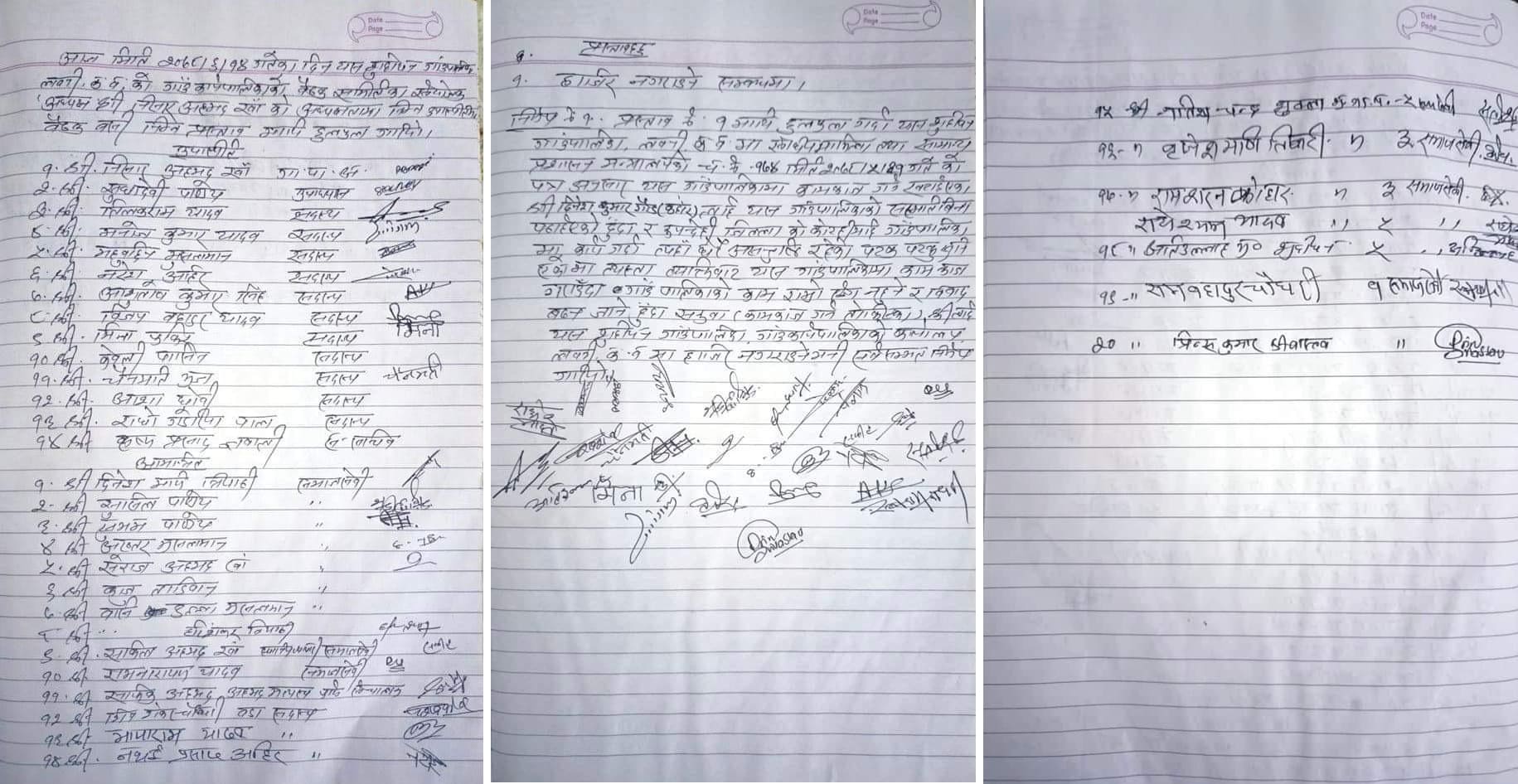
A minute of Suddhodhan Rural Municipality.
In July, Dipak Dhakal, administrative officer of Manang Disyang Rural Municipality was transferred to the Urban Development Ministry. Ideally, the senior most municipal officer should be assigned as acting chief. But the ministry appointed health coordinator Narayan Yadav sidelining senior officials. An official at the municipality said Yadav had quietly lobbied with local politicians to get the responsibility of acting administrative officer.
Even as he got bigger responsibility because of political ties he can’t assign seniors. “Work hasn’t been stalled but Yadav sir cannot ask other officials to work,” said the official.
Spokesperson Adhikari says officer bearers of local governments approach the ministry to appoint government employees working as education and health officials as the acting administrative officer.
“Not at all but some local governments even didn’t allow chief administrative officers deployed from here [ministry] to work for ensuring the position of acting chief administrative for local officials,” said Adhikari adding, “The intent could be to use those government officials from local areas and serve their conflict of interests.”
Chintan Tamang, mayor of Dhankuta Municipality, says he has no concern about whether the chief administrative officer is local or not. “No concern at all other than work,” said Mayor Tamang, “When our work is going well why [they] should come from the federal government.”
Ram Bahadur Thapa, education division chief of Dhankuta Municipality, is now working as acting chief administrative officer. “We were adjusted to local government and are running all well. Why do you need administration from the federal government?” he asked.
Divided political parties
Political parties representing in the federal parliament continue to dispute over whether the chief administrative officers of local governments should fall under federal, province or local government. As part of its temporary arrangement Local Government Operation Act-2015 has mandated the federal government to appoint chief administrative officers to local government. But the Civil Service Act bill introduced to resolve the dispute is pending at the parliament for the last two years as parties fail to forge consensus over provision related to chief administrative officers. Main opposition CPN-UML is for mandating the federal government to deploy a chief administrative officer. The governing Nepali Congress, UCPN (Maoist) and Madhes-based parties are for appointing chief administrative officers among those hired by local government.
Former Minister Pandit argues that since Nepal has ‘coordination-based federalism’ there will be better coordination among the government only when chief administrative officers are deployed from the federal government as its representatives.

